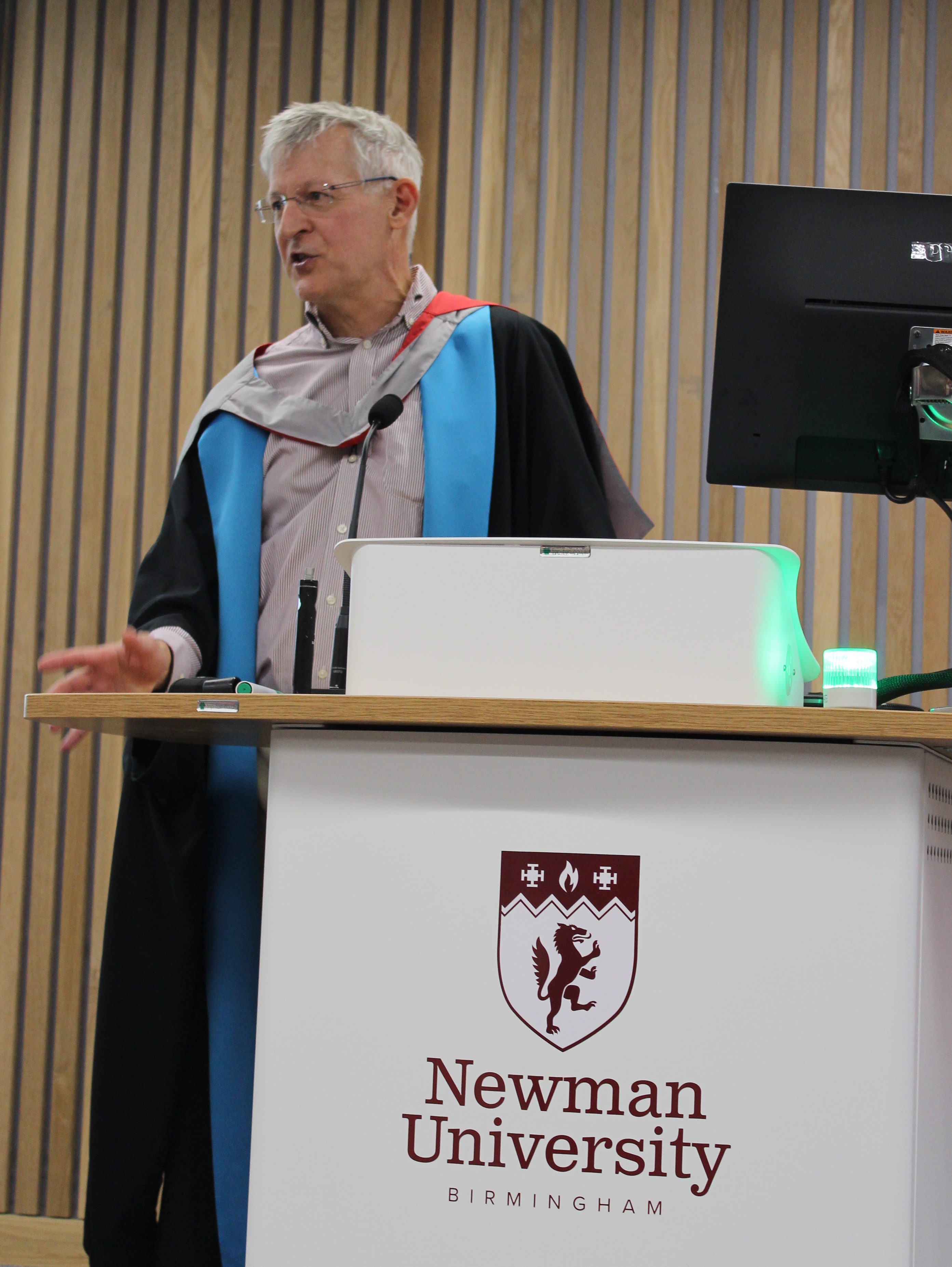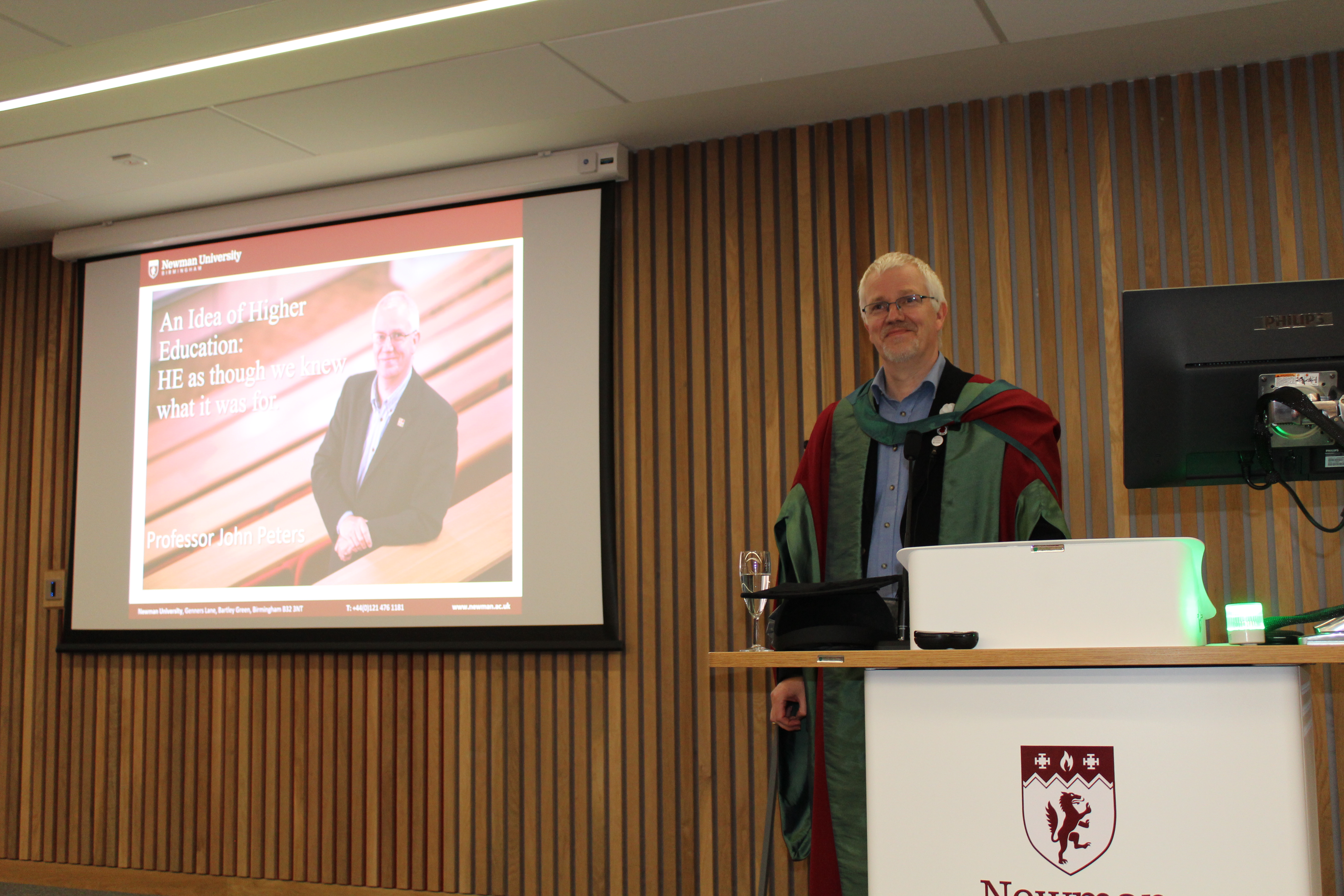Inaugural Lectures held at Newman
October saw two inaugural lectures take place at Newman University as part of its 50th celebrations.

The first was Professor Dave Trotman’s lecture titled Education in Super-Complex Times: Young People, policy and effects and the navigation of the educational lifeworld. Professor Trotman presented on 10th October to a number of attendees, speaking of how young people are affected by education policy in England and what might we learn from the accounts of their experiences in schools – particularly when things go wrong. Professor Trotman also explored the view that while the education of young people has always been necessarily complex, the contemporary world that young people inhabit is now highly complex – in fact, as some observers argue, super-complex; how are schools and educators helping young people to effectively navigate the educational lifeworld, or are schools and teachers a significant part of the problem, perpetuating harm in a system that is no longer fit for purpose?

In this Inaugural Lecture Professor Dave Trotman examined the consequences of education policy in the lifeworlds of young people. Drawing on research conducted over the past six years with children, young people and educators in variety of school contexts, he presented an account of the dimensions of supercomplexity as both a national and supranational condition and detailed what the research evidence revealed about the effects of this on young people. Emphasising the importance of children and young people as ‘reliable witnesses’ to their own educational encounters, the lecture concluded with observations on what this means for schools, curriculum, educational practice and policy makers.
The second of the inaugural lectures to take place at Newman was from Professor John Peters. Professor Peters presented his lecture titled Higher Education as though we knew what it was for on 30th October.

Professor Peters looked at the fact that more than a century and a half ago, Blessed John Henry Cardinal Newman set out his still influential ‘Idea of a University.’ Many since have attacked, embellished or sought to revise his ideas about the nature and purpose of Higher Education. Most recently, the neoliberal framing of HE – in terms of costs, fees, and value for money – has dominated the debate. Professor Peters asked the question ‘Does HE really face a simple choice between retreating to ivory towers in pursuit of knowledge for its own sake or becoming just another service industry with students as both paying customers and employable product? What does the 21st century call HE to be?’ In his inaugural lecture, Professor John Peters argued HE can offer hope in our dark times of fake news, tribalism and shallow, economic self-interest through enacting a pedagogy of partnership.

Both Inaugural Lectures will be available to view online shortly.
